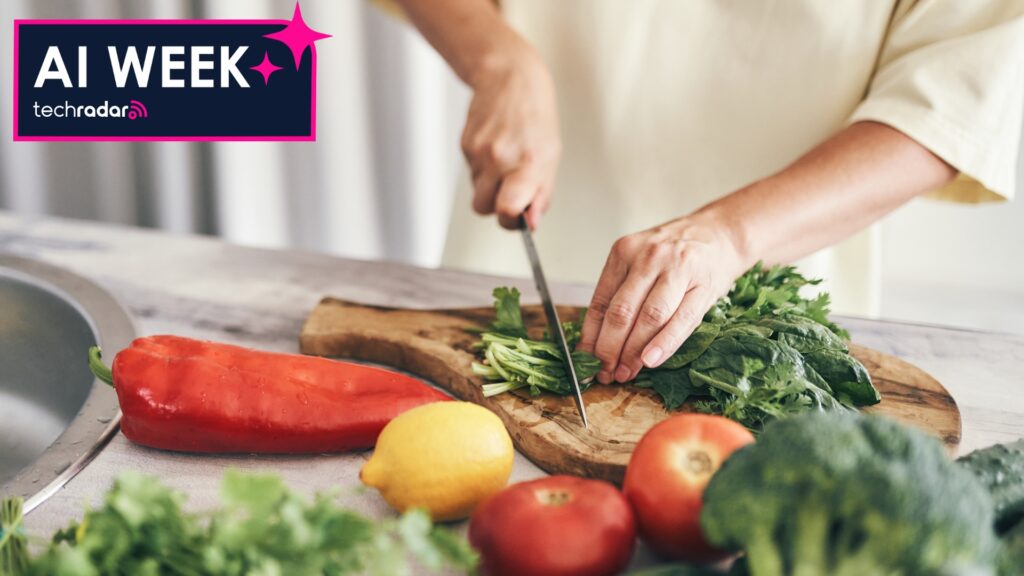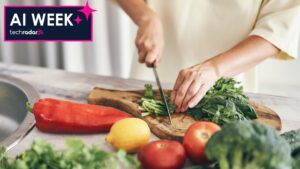
Artificial intelligence is transforming the way people approach meal planning, making it easier to maintain healthy eating habits. ChatGPT, the AI language model developed by OpenAI, is becoming a popular tool for individuals seeking to streamline their cooking and nutrition efforts. With its ability to generate recipes, suggest meal plans, and provide cooking tips, ChatGPT is helping users navigate the complexities of preparing healthy meals.
Streamlining Meal Planning
Preparing meals at home often presents challenges, from deciding on recipes to managing grocery lists. Many individuals find themselves unsure of what to cook, either lacking time for planning or struggling with ingredient coordination. By utilizing ChatGPT, users can bypass these hurdles. For instance, a request for “five quick dinners for two people under £30” can yield a complete menu with corresponding recipes tailored to specific dietary preferences.
In a recent test, I asked ChatGPT for “five high-fibre dinners, easy to cook, under 500 calories each.” The results included practical options like lentil curry, roasted chickpeas with salad, and stir-fried vegetables with brown rice. Each suggestion came with a recipe and nutritional breakdown, providing a solid starting point for meal preparation.
Minimizing Food Waste
One of ChatGPT’s standout features is its ability to assist with reverse meal planning. Instead of beginning with a recipe, users can input ingredients they already have on hand. For example, asking for meal suggestions with chicken, spinach, and couscous can lead to creative meal ideas that reduce food waste.
This functionality proved invaluable when I had leftover ricotta cheese. ChatGPT suggested three recipes, including a spinach and ricotta pasta that took just twenty minutes to prepare. This not only prevented food waste but also resulted in a satisfying meal.
On busy weeknights, when energy levels may be low, ChatGPT can generate meal plans based on pantry contents. This capability allows individuals to make the most of what they already have, ensuring that meals are not only easy to prepare but also aligned with personal dietary goals.
Balancing Nutrition with Ease
Maintaining a balanced diet can be a daunting task for many, particularly when it comes to tracking calories or macronutrients. ChatGPT simplifies this process by crafting balanced meal plans that meet specific nutritional needs. For instance, asking for a week of high-protein vegetarian meals totaling 2,000 calories per day can yield a comprehensive menu complete with recipes and shopping lists.
In one experiment, I requested a plan centered around protein-rich meals. The resulting menu featured lentil soup and tofu stir-fry, complemented by lighter lunch options. Additionally, ChatGPT suggested snacks that aligned perfectly with my caloric target, making it easier to adhere to dietary restrictions without feeling overwhelmed.
Enhancing Meal Preparation
Batch cooking is an effective way to save time, and ChatGPT can help streamline this process as well. By asking for “three meals I can batch cook on Sunday that will last the week,” users receive organized plans complete with storage tips. In my trial, ChatGPT recommended dishes such as chili and roasted vegetable trays, with guidance on how long they would remain fresh in the fridge or freezer.
This feature alleviates concerns about food safety, ensuring that users can enjoy leftovers without uncertainty.
Flexibility and Personalization
Real-life cooking can be unpredictable, with missing ingredients or last-minute changes often derailing plans. ChatGPT offers flexibility by providing substitution suggestions. If a recipe calls for aubergine and it’s unavailable, a quick query can yield alternative options, along with notes on potential flavor changes.
The personalization aspect of ChatGPT is particularly valuable. Whether users require quick meals for late nights or recipes suitable for children, the AI can adapt suggestions to fit individual lifestyles. Training for a marathon? ChatGPT can recommend meals that boost carbohydrate intake around training days.
It’s essential to remember that while ChatGPT offers numerous benefits, users should validate recipes and nutritional information, especially if they have unique dietary needs. Consulting a professional is advisable when necessary, as taste preferences and culinary skills can vary widely.
Overall, ChatGPT’s role in meal planning is significant. By simplifying the process of organizing meals, generating recipes, and managing grocery lists, it alleviates the burden of decision-making. This allows users to focus on the enjoyable aspects of cooking and eating.
In a world where meal planning can often feel overwhelming, leveraging AI tools like ChatGPT can restore joy to the kitchen. By transforming cooking from a chore into a manageable routine, individuals can embrace healthier eating habits with ease.







